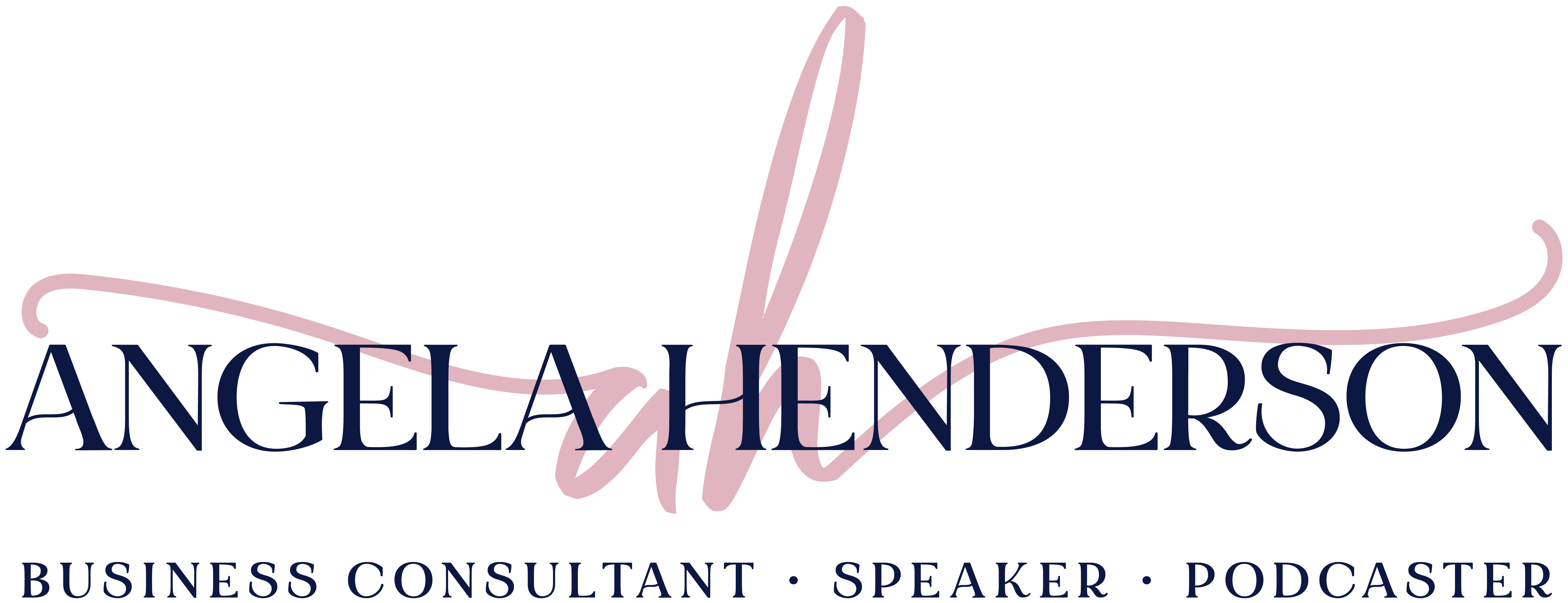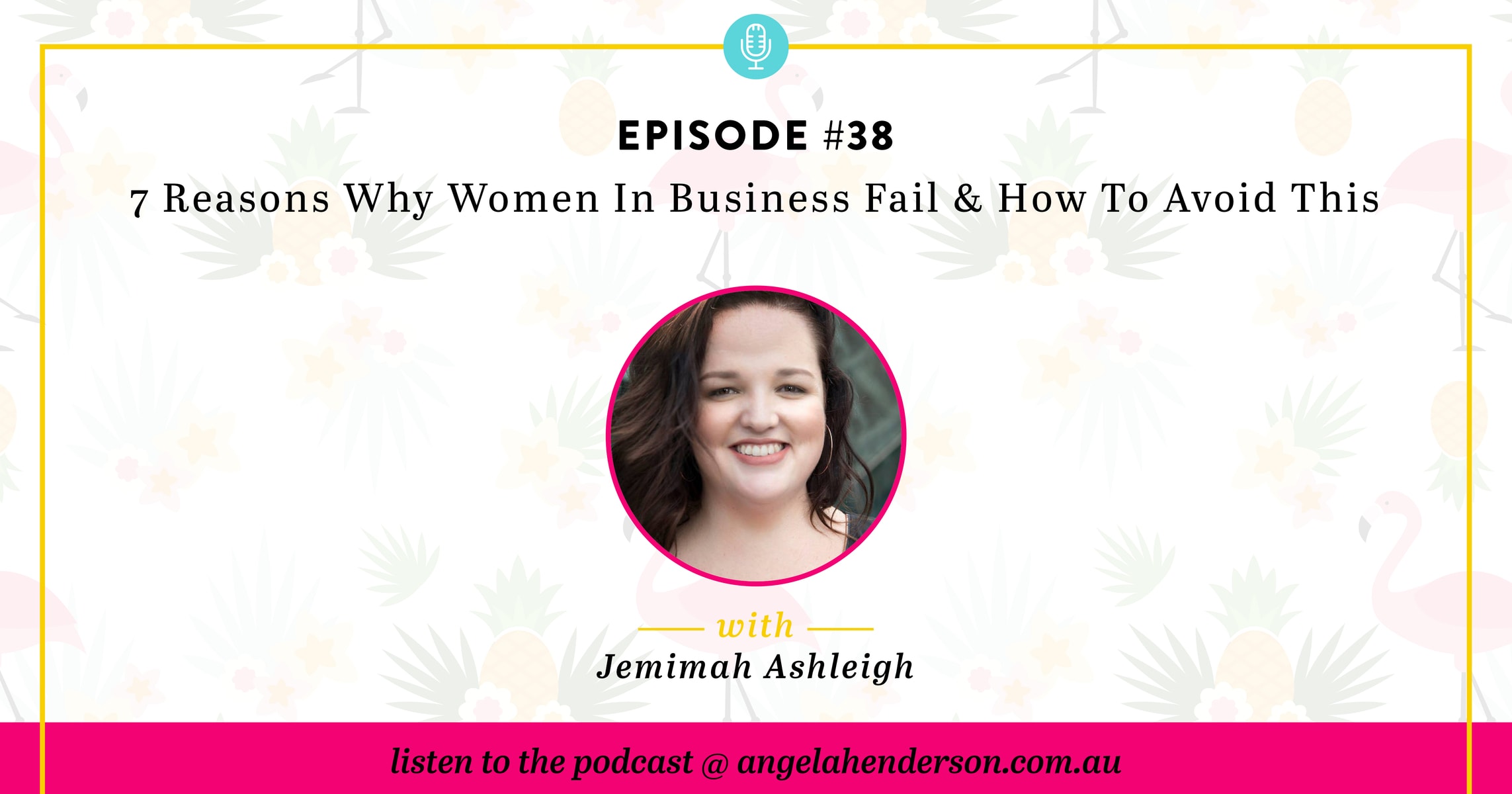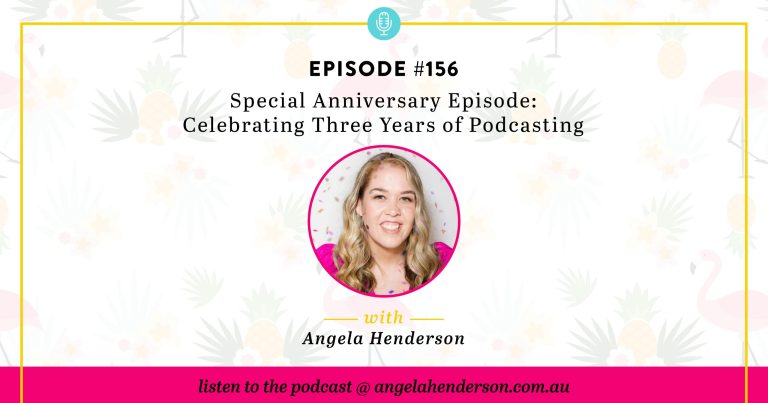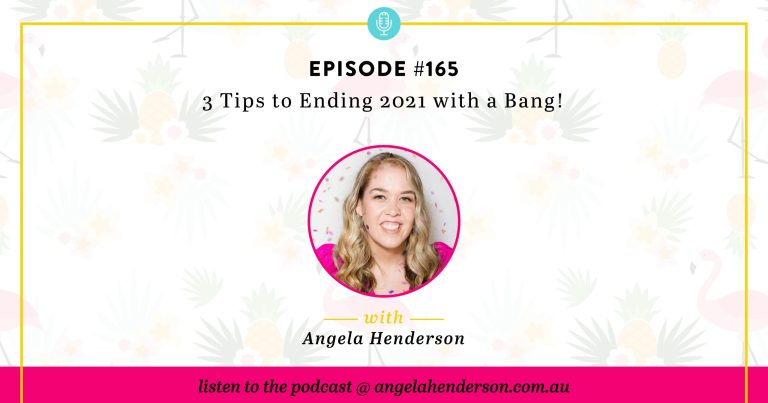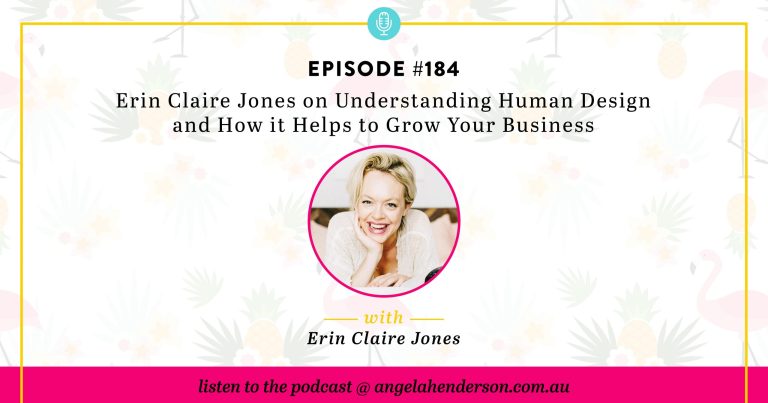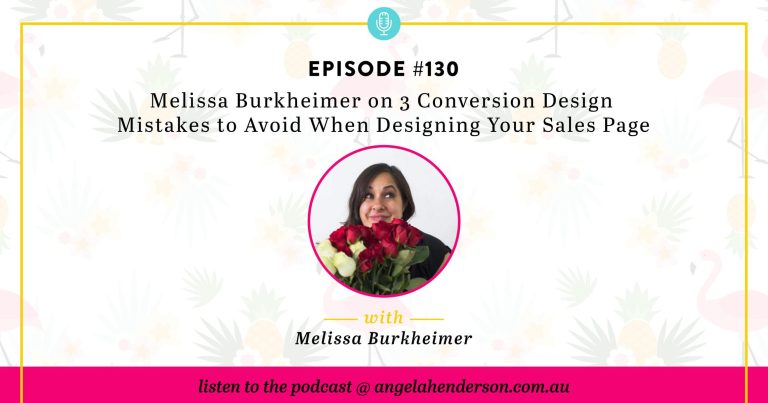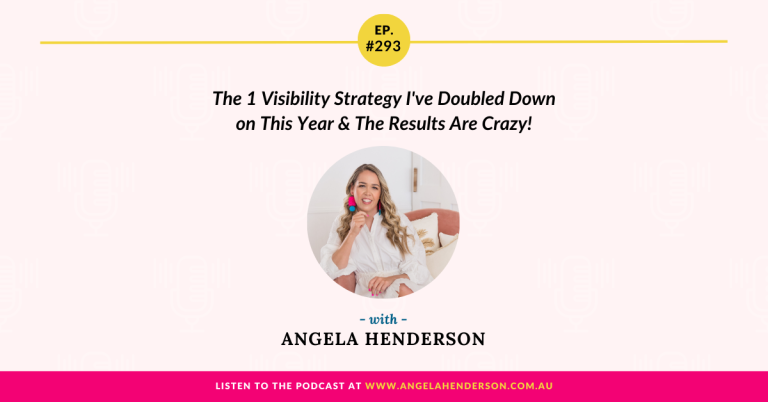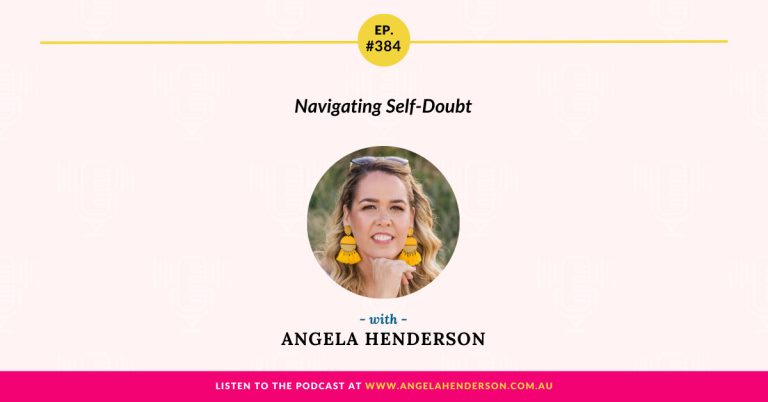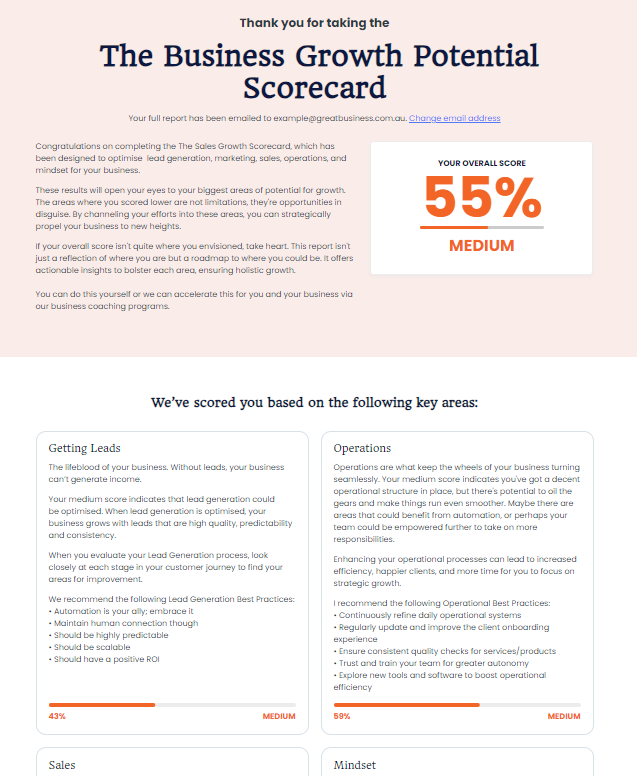Why are women failing more than men in business? According to statistics, 97% of female startups fail within the first five years. In Episode 38 of the Business & Life Conversations Podcast, Jemimah Ashleigh, a Business Positioning Expert, joins us as we talk about the 3 reasons why women in business fail and how it can be avoided. We also unpack how you can find inspiration and motivation to help you in building your business despite having so many roles both at home and in business.
Important Links Mentioned in the Show:
Angela Henderson Active Business Facebook Group
Angela Henderson Facebook Business Page
Prefer to read 7 Reasons Why Women in Business Fail & How to Avoid This? Here’s the transcript:
ANGELA:
You’re listening to the Business and Life Conversations podcast, with Angela Henderson, episode 38.
Hey there, you’re listening to the Business and Life Conversations podcast, my name is Angela Henderson, and on this show we talk about improving your business, life or both. By having amazing and rich conversations with brilliant guests. Who will inspire you and who will give you tips and tricks, to help you grow both in life and in business.
Well hey there and welcome back to another episode of the Business and Life Conversations Podcast. I’m your host Angela from Angela Henderson Consulting and as always, thank you so much for being here. Now I’ve been in business for over eight years now and it breaks my heart knowing that 97% of female startups fail within the first five years. I was asked about 18 months ago by the State Government of Queensland, Australia if I would be willing to come on board as one of their business mentors for their Mentoring for Growth Program specifically around their Advancing Women in Business Strategy. Why? Because the data they’ve collected clearly states that women in business report that they have less access to grants, events, and mentoring, and as a result of not having access to these tools and opportunities, women are in a negative cycle of failing and it continues.
It’s been a privilege to work directly with the Queensland mentoring program as I’m super passionate about supporting women in business to avoid any type of failure, so you can only imagine how excited I am about today’s show. Why you ask? Because Jemimah Ashleigh joins me on today’s show and we’re talking about the reasons why women in business fail and how women in business can avoid this. Now before we jump into the chat with Jemimah, I just want to remind you that this episode is sponsored by my very active and free Facebook group, the Australian Business Collaborative. If you’ve been wanting to be connected with like-minded business owners who will help answer your questions, provide you with support, and make you laugh, then you are the perfect candidate for joining the Australian Business Collaborative group. Just head over to Facebook now.
I won’t make you wait any longer, let’s go ahead and jump into my conversation with Jemimah. Welcome to the show, Jemimah.
JEMIMAH:
Hi, thank you so much for having me. I’m excited to be here.
ANGELA:
Gosh, well thank you so much. I know we were just talking prior to the recording how you’ve had a nice little adventure out to Kmart today.
JEMIMAH:
Yeah, really big things are happening in my life. I also had some sushi for lunch, so big things.
ANGELA:
Big things, but important things. We’re also talking about how I’m in my glitter slippers. You’re kicking it with, what do we call ’em, buns? Our hair..
JEMIMAH:
Yeah, yeah.
ANGELA:
We’re both rocking the bun today.
JEMIMAH:
The messy bun.
ANGELA:
Yeah, the messy bun, that’s it, so it’s always good to connect with again, like-minded people who like to chill, have a good time. Now I also think it’s interesting because Jemimah, this is our first time connecting. I mean, we’ve obviously emailed each other in regards to the show, but besides that, we’ve never actually met each other in person or anywhere else. As I was researching for the podcast today, there was a thought that went through my mind that potentially we are sisters from another mother because when I was looking up, you’ve got a clear passion to help women in business.
In fact, when I was reading about you, that’s the reason predominately, why you went into business. You’ve also completed a Master’s degree, as I have and you also started your career more in a corporate role. You were with the Australian Federal Police and I’ve been working with government roles here and in America and then ended up with Queensland Health. So, even though our businesses are very different and we’ve also had businesses, there’s a lot of similarities and I also like that in your profile photo, you’ve got a good splash of pink going on because I too love pink. There’s a lot of similarities, so that’s why I’m super excited to also have you on here, even though I didn’t know that prior to inviting you on.
JEMIMAH:
I feel like, did we just become best friends? Is that the litmus test? I like it.
ANGELA:
We potentially might, anything you do with pink, corporate, master’s, you know, educated women, and again, passionate about helping, so, so excited.
JEMIMAH:
Oh and that photo was taken in the U.S. That pink wall is actually a pink wall in LA.
ANGELA:
See, there we go again, another connection. You know I am from Canada though, not the U.S., but I have lived in the U.S. for many, many years. But no, my kind of test that I do every time someone comes on, because I think it’s important that the listeners get to know you a little bit, Jemimah before we jump into this heavy stuff about why women in business fail. Can you tell the women in business out there and there’s male listeners too, something a little bit about you, a little bit about your business, and also what you favourite book is and why?
JEMIMAH:
Okay, so Jemimah Ashleigh. I work as a positioning expert now which is a nice way of saying a very fancy business coach. I specialise in working with women in business. I work with men as well, not to exclude you from the conversation. You are definitely needed in this conversation, but I work with women to really help them position themselves as the expert in their field, as the go-to person to speak to. I love working with women and I’ve loved working with women forever because I think there’s something really empowering about helping women because of this failure rate of 97% that we’ve kind of touched on. I live in Canberra at the moment, in Australia, in the ACT. I am actually a very rural girl. I grew up in East Gippsland in Victoria. Then moved to Canada, of all places, another full circle moment for us, Ange.
ANGELA:
Yes, exactly.
JEMIMAH:
Was there for a couple years, then have lived pretty much all over Australia and now the world, given my job in the AP. Moved to Canberra with the work in the Australian Federal Police and then ultimately met my husband, so I’m sort of a bit trapped now, living in Canberra. My favourite book is, oh man, this is like a Sophie’s choice moment because there’s so many amazing books. You know, I’m going to go with Bossy Pants by Tina Fey.
ANGELA:
All right, and what was your key take away from that?
JEMIMAH:
The key take away from that is that you can live a life of creativity, of things that you love, go to work every day, love it, but it’s also and you can make money and be successful doing that. But one of the key things for me was she was not shy about talking about how much work it was at the same time. It was a real reality check. Just because you’re famous doesn’t mean you’re not doing 18, 19, 20 hour days. Just because you’re well known doesn’t mean that doesn’t exist. The hustle and the grind still exists no matter where you are in your journey and that was a beautiful kind of full circle moment for me as well.
ANGELA:
I think there are a lot of people out there either looking for the next free thing to get them over the line or the next course that’s going to make them a millionaire, but at the end of the day, regardless if you take a course, you still have to put the work into it. Regardless if you put down or do an opt-in or something like that, you still have to put the work in. Right? So, I do find it interesting that I think there’s this belief out there that if you do this, you’ll become a millionaire. No, it comes down really to working hard, at the end of the day. You have to put in your time. You don’t start off in the Australian Federal Police as you do, straight at the top. You start at the bottom and you work your way up the ranks. It’s the same thing with Queensland Health. It’s with any job, so it’s no different in the world of being an entrepreneur.
JEMIMAH:
Yeah, I think there’s something, an argument really to be made for entrepreneurship and success ultimately being a numbers game.
ANGELA:
Yes.
JEMIMAH:
If you and I go head to head for two months and you do a 100 hour work week and I do a 50 hour work week, 100%, you’re going to come out ahead. You did more work than I did ultimately, at the end of the day. Again, this is actually one of the huge reasons that women are failing.
ANGELA:
Yes, yep. No, I agree. We will get into that. As I was talking to you about this before the show is that American Express did a survey and what they found was that there’s a 9.1, now this is United States data. I couldn’t find as good as data here in Australia, so I also have listeners around the world for this podcast. For the purposes of this podcast, American Express did a survey and they found that 9.1 million women own businesses collectively in the United States. I mean, I was floored that it’s 9.1 million, which is a wonderful statistic for women in business, but a statistic that’s equally as a wow factor for me, is that 1200 women in business launch every single day in the United States which is awesome, absolutely legendary, but yet of those 1200 women, of those 9.1 women owned businesses, 97% of female startups fail within the first five years. Now, it’s mind blowing to me and there has to be something that again, the fact really is that it remains women are failing more often than not in business.
Now before the listeners out there jump off and like, “I can’t handle this lady and what are they talking about?”, you have to remember that 95% of my clients are women in business, so I’m a huge supporter about women in business. I’m all about it, but the fact still remains the same that there’s still a huge percentage of women failing. So Jemimah, what are your initial thoughts about that? What are some of the reasons why you’re seeing women in business failing?
JEMIMAH:
Yeah, so let me just clear something up as well. When we’re talking about this 97% of women, that statistic, we’re failing at twice the rate of men, so you know, these are the statistics. I can’t argue with this. This is actually what’s going on and I think we’re getting clearer and clearer data now that we’ve got things like social media.
Okay, so why are we failing more? Really good question. The first reason that we’re failing more is simply just going back to the numbers game because we do 85% of all the household stuff, all the childcare, and all of the purchasing in the household. When we talk about the numbers game, we actually don’t have anywhere near the amount of time as our male partners and our male cohorts. We are doing all the cleaning, 85% of the cooking, 85% of the household purchasing, the milk, the Christmas presents, the birthday presents. We take the dogs to the vet. We pick up the kids from childcare. We are losing 85% of the amount of time our male friends have that we just don’t have anymore.
ANGELA:
Again, I think you..
JEMIMAH:
That is the..
ANGELA:
If you even asked anyone whether or not, some would admit it or not, it just is the way. My husband’s still helpful, don’t get me wrong. He takes the kids to school four days a week, he does things like that, but the ultimate, the school paperwork that comes home, “Can you sign this for this excursion? Can you do this? Can you arrange the birthday parties?” You know, all those things, I can guarantee that at the end of every day, I’ve got 10 more things on my to do list for the kids because just when you get done one, there’s 10 more things to do. Like I said, even though my husband’s very helpful, as I’m sure many people out there listening would agree their husbands are helpful, the reality of it is, again, it’s a numbers game. We’re doing the majority of stuff.
JEMIMAH:
Yeah, and there is a big difference here on invisible work, visible work. The invisible work is things like we have to go to the doctors more frequently because lady parts need more in personal attention than dude parts. Yeah, but you take that four or five hours each year, it adds up. We’re the ones that mostly, entrepreneurs work from home a lot, so we have to do things like we run out of milk, we go and grab it. That’s a 15 minute trip and this stuff adds up. We get interrupted doing a podcast because we have to go and get the mail. These things add up every single day and we are doing 85% more. I am not criticising men out there. I know there are men who are like “I do a minimum 50,” and I applaud you. I’m just giving you the statistics of what is currently going on inside everyday homes in Australia.
ANGELA:
Yep, no, fair enough call and I agree again, I’m very scientific, hence that’s what my master’s degree is mental health. As for you, the numbers speak. It’s not like Jemimah and I have been here today just pulling numbers out of thin air. This is what the data is reporting and again, that’s what when Queensland Health Mentoring Program asked me, that’s what they’re saying. This data is not lying, we need to make a change. We need to make a shift, so that’s number one. It’s a numbers game. Why do women in business fail? Number two, what are your thoughts about that?
JEMIMAH:
The next one is for me that we don’t get the right tools at the right time. This comes down to touching on all the free courses and all the things, so we do a couple of different things as women. What we’re seeing as trends and more specifically in social media statistics, we see women start what I would refer to as a soft business initially and they often look like things like multilevel marketing, they often look like. These generally have a bit of a lifespan on it for some people, so that’s one of the reasons.
But what people often do is because they’re not willing to go fully in, often due to mindset, on their big vision for a business, whether it’s starting a fashion label or making jewellery or becoming a silversmith, whatever that looks like for you, they don’t put investment and get business coaching or get the right tools at the right time, so they’ll go and do a hundred free courses and kind of half ass them, rather than pay one really good qualified person to help them get through the first year. They just do the wrong tools at the wrong time.
ANGELA:
Do you think that’s a mindset around that?
JEMIMAH:
Hugely focused on mindset and hugely focused on not wanting to bet on themselves.
ANGELA:
Yep, so why would you say that women are less likely to get a coach from a mindset perspective, than a male who would just go, “Screw it, I’m in.”
JEMIMAH:
Yeah, and just go, “Oh, it’s totally fine,” because I think we have been overanalysed so frequently, much like we’re having this discussion now, but we’re being overanalysed in this situation of we have, it’s almost a guilt complex that I see so frequently with all my clients of that, “I’m worried about investing this money. What if I don’t get a return in investment? What if I do this? The kids are going to have to go without. We’re not going to make it to Disneyland for holidays, we’re going to have to just go up to the Gold Coast and go to Dreamworld or something.” It becomes this, it’s a self-sacrifice mentality that women have and they want to really not invest financially in themselves so as frequently as some of the male cohorts. It’s a real problem and it’s a real mindset issue that we have that we are valuable. We can make this work and it’s often because we’re being dismissed, particularly in our corporate careers.
ANGELA:
I also would add, I’ve just come back from the Maldives for my own business mastermind, and again, even when I attended Chris Ducker’s a few years ago and other events, statistically speaking, on the Maldives trip for example, there was three women, seven men, because there was only 10 were allowed to go. Of the three women, I was by far the youngest, by probably 10 to 15 years, which that’s not a difference from that point of view ’cause you can get a business at any time, but what I’m saying is that, I then asked myself why are, do you know what I mean? Is it because we’ve got kids? I’ve got two kids also.
Chloe’s five and Finlee’s nine and one of the guys said something along the lines, “So your husband allowed you to come out?” or something like this, not meaning to be mean or rude or anything. I was “Well…” And it was like going “Wow, your husband’s really great, you know what I mean? He’ll take the kids for you to come on this trip and your husband, wow, that’s really awesome.”
I’m, “Hold on a minute. He’s the sperm donor too, it’s not just an egg that made this kid, right?” Again, I think there is this, again, and I know we’re slightly off topic, but the fact is that men get applauded because they’re staying at home with the kids, but as women, we’re doing that all the time and you don’t see that it’s again, how society’s perceiving things and the roles of what we do, men and women, so it was just an interesting question that I had on that particular trip about “Wow, your husband’s letting you come?” And two, how great that he’s got the kids. I’m “Hold on, he didn’t allow me. I made that choice myself and two, it’s okay that he stays at home.” Again, it’s interesting and I wonder how many people have that mum’s guilt ’cause I don’t have that guilt. I look at it from the point of view as that I’m actually enhancing myself, but I’m equally showing my kids that I’m not just a mum, that I’m someone else. That it’s okay that they stay with their dad. I don’t know. What are your thoughts around that?
JEMIMAH:
Yeah, I think there is this idea of when “Oh, so your husband’s babysitting?” Or you’ve left and you’re like, “We’re really excited that he will continue to be the children’s father.”
ANGELA:
Yes..
JEMIMAH:
Kind of concept about and we are in a really interesting time in the world right now with everything that’s happening across the political situation, we’re almost hitting the third wave of feminism if we’re not already in that. I think history will go back and we will see this as being a real defining couple of years for the planet and the human history. One of the things that I find really interesting in this is that it’s given both the pro-women movement and the sort of the pro-men movement, there wasn’t a lot of collaboration in that. There seems to be a real people having the divide. I think where we need to get to is if you bring a human into this world, it’s 50/50 responsibility at this point, guys. We’re seeing higher rates and an understanding now of paternity leave rather than just acknowledging maternity.
We’re now seeing men being the stay at home and the woman can be the breadwinner and we have to just also take a step back and realise that this has only been traditional that women have been in the workforce for the last 30 to 40 years. We’re still playing a little bit behind the game here, just simply in the numbers game and some of the people who were around in the ‘60s are still in the workforce.
ANGELA:
Yes.
JEMIMAH:
So, we have some real institutional cultures that we have to weed out and some real things that we have to change, but it’s a very interesting time when my husband hates going to the award things, right, he hates it. He’s not interested. He is the total opposite of me. He’s a total introvert. He’s an engineer. He is like, “Why do I have to talk to these people? I don’t want to sit at this table” And people say to me, “It’s really nice that your husband’s let you come out for the night.” I’m like, “I’m nominated for an award. I’m a finalist. I didn’t ask for permission for this. I have to be here for this.” “Oh that’s nice. Oh, he’s picking you up at the end? Isn’t he great?” “He’s doing the bare minimum, we should not be applauding the bare minimum.”
ANGELA:
Yeah, no, and again, whether or not you’re.. Again, it’s not just men too, it can be in same sex relationships also, so again, I think it’s about just an equal partnership, however we want to look at that.
Okay, so we could probably talk about this again for ages.
JEMIMAH:
Yeah, we could have gone way more feminist..
ANGELA:
Than I think we ever thought, but again, this is why again I like having the Business and Life Conversations Podcast because sometimes it’s important that you have these real conversations and just focus in on learning three tips to do; x, y, and z. So we’ve talked about it’s a numbers, 85% of household stuff is one of the reasons why women in business fail, that they don’t get the right tools at the right time. You could hone in on the little bit that we’ve also talked about the mindset element, that there’s a mindset shift that needs to happen in order for women to be able to then, I guess, access those tools or give themselves permission to actually grow or scale the way they want to. What other thoughts do you have about why women in business fail?
JEMIMAH:
We don’t get the right people around us.
ANGELA:
Yep. Do you want to elaborate a bit more?
JEMIMAH:
Yes. We have, as every entrepreneur and every business owner will have heard, Jim Rohn was famously quoted for saying, “We are the sum of the five people we spend the most time with.” This is, I cannot tell you how important this is and what I mean by this is often when we have kids at home and we have life stuff going on, it’s very easy to be like, “Well between the hours of 9 and 3, I’m going to work on my business.” What we forget is that there are other entrepreneurs out there that we can be spending time with. There is a huge reason that you need to doing networking. There is a huge reason that you need to be involved in Facebook groups and discussing and learning and doing masterminds and these kinds of things. You need to really analyse the people around you and how supportive they are being of your business.
We see, and I will use myself as an example to be totally fair to everyone here, I worked in law enforcement. I worked as a criminal intelligence analyst. I was very good at what I did and after 10 years, I said, “I’m tired. I am exhausted all the time. I’m in my 30s. I don’t want to do this job anymore. I am making a grown-up decision that I want to leave, but I’m going to start a jewellery business and what would ultimately become a podcast series and what would become doing coaching and helping people make six figures.” The first thing everyone did was pull me aside to tell me how crazy I was and it wasn’t personal on them. This is the part that was really clear. If you are a new person in business, male or female, you will have people around you who are scared for you because they’ve never lived..
ANGELA:
It’s true.
JEMIMAH:
..up to their dream. They never did what they wanted to do and so you’re having to pay that price a little bit. This is where you have to have a bit of faith in yourself, but if you don’t have any other entrepreneurs around you or other people who are in businesses, you’re going to find yourself in a really bad place really quickly. You’re going to have other people who are buying into your dream, believing in what you’re doing, can give you assistance when you need it, so the first thing I ask people to do, especially if a client, is ask them to audit who are the people you are spending the most time with. Now, it doesn’t have to be physical time.
One of the first people that I ever considered to be a mentor for me was Gary Vaynerchuk. I watched every video. I listened to every book. I understood what he was saying. I watched where he came from. He talks about the hustle, I’m not big on that, but he does also talk about the grind of, you have to work harder than every other person. Get real about it, figure out how much work you’ve got to do, figure out your message. He was very helpful for me. I hadn’t met him at that point. I’ve met him now, but I hadn’t met him. He was the person that really believed in me before anyone else did, so it doesn’t have to be your cousin or your neighbour or your partner. It can be other people out there that you just go and get advice from and it can be a one-sided conversation, but you need to be networking. You need to get good people around you. You need to listen to podcasts. You need to watch videos. You have to get the right people around you.
ANGELA:
And I couldn’t agree more with that and I think again, there’s a level of the toxic people too. After you’re done taking that audit, and I do something very similar too with my clients, is that you also don’t want to be the smartest person in the room because it’s hard for you to learn, but again, there are going to be people bringing you down every single day. Even when I was still working full time, people would always be “Oh, so how’s it going? You a millionaire yet? How you going?” You know? Almost very passive aggressive and it was those people you have to cut out because like you said, they are wanting what you have. There’s a little element of jealousness that you get to live your dream. Get rid of ’em and I couldn’t agree more.
Surround yourself with positive people. There’s a lot of Facebook groups that are bunch listen there and just equally as toxic. You’re better off having a group of two or three really solid groups that you can go in to at all times and get your fix, your daily dose of happiness, again, or support and get rid of the rest. It’s the same thing with friends and family. If their Facebook feeds are annoying you or they’re Debbie downers or they’re complaining about work or having to go to, “Oh, it’s Monday again.” Just block their feed. You don’t have to see it. Again, it comes down to women need to take action. You can sit there and whine about it, but if you don’t do anything about it, you’re still going to be in that negative cycle.
Networking, I’ve talked also too Jemimah, about people, you don’t have to go and spend tens and thousands of dollars on masterminds. There’s enormous amount of free networking groups, but what I say to people is position yourself in a networking group where it’s going to grow your business. When I first started years ago, I would go to these networking groups that there’s nothing, I was getting nothing from it. I was the one giving, but not getting much in return, so now I strategically look at where can I go that I can help people, but equally I get some benefit from going. There are many free events that you can attend.
JEMIMAH:
Yeah, and I think it’s really important with networking is to understand that again, just going back to numbers here, is that each person, a lot of people make a mistake when they do networking, going in with a transactional thinking, going “Hi Ange, I’m doing a mastermind. Are you down to, do you want a spot in it?” Rather than going, “Hey, I know you have at least a thousand friends on Facebook and you have a huge mailing list and is there a way we can collaborate?”
ANGELA:
Exactly right.
JEMIMAH:
Because, so a really big thing here is figuring out who, where is your ideal client already spending money?
ANGELA:
100% and again, you don’t, I use this analogy all the time, but you don’t go to the bar and ask someone to go to the bathroom and sleep with them.
JEMIMAH:
Yeah, exactly.
ANGELA:
You don’t. You don’t jump from that to that and it’s the same thing with networking. I actually tell people when they come to my own networking events, leave your business cards at home. People are, “What do you mean?” And they get quite anxious, “What do you mean? I thought I was going to..” I’m like, “Trust me. There will be plenty of opportunity for you guys to leave a memorable experience in these people’s brains and you can follow up. Do not bring your business card.”
JEMIMAH:
Yeah, and just it really does then change it. I’m not trying to sell to you, but what I want to do is figure out how can we help each other here.
ANGELA:
Yep. So again, listen, so women in business can obviously fail for multiple reasons and we can probably list a bunch, but again, I think the three you’ve honed in on are really important about it’s a numbers game, not right tools, and they’re not surrounding themselves and are networking appropriately. What would you suggest women can do to avoid falling into this cycle of women in business failing?
JEMIMAH:
I think the big thing is figure out, the first thing you need to do is figure out what you want to do because I cannot even explain to you and you would see the same thing, that how many people who have been in business for more than 12, 18, two years, they have not established what they do and what they want to do.
ANGELA:
Yes.
JEMIMAH:
Be clear on what you want and why I say this is important is that I’m going to use a real example again. I have a client who is an actor and he’s given me permission to tell this story because I think it’s so poignant about being honest about what you want. He said to me, he’s a male client, he said to me, “I want to be a well-known Australian actor.” I was “Great, that’s fantastic.” I said, “What does that look like? Get clear on it right?” He’s like, “I’m on Neighbours or Home and Away.” I was like, “Great, pick one, let’s work on that.” Within sort of the first three weeks of me working with him, we went to a party and sometimes guys can take a little while to confess up what they want and he looked at me and he goes, “I’ve changed my mind. I want to win an Academy Award.”
ANGELA:
Yep.
JEMIMAH:
He looked at me and he’s “You’re not laughing.” I said, “I don’t think you’re kidding.” Now here’s the problem and this is so, it’s just a human thing that we do, but we downplay the things we want in case we don’t get it. If he confesses “I want an Academy Award,” and he doesn’t get it, he’s worried I’m going to judge. I’m not going to judge anyone. Whatever you want, be as unrealistic, if you want to be an international bestseller 40 times over. If you want to be the next Gary V, you want to be Prime Minister of Australia, you want to be President, I think we’ve all proved in the U.S., anyone can do anything that they want to do, right? But here’s the thing, you have to be clear on what you actually want. That’s the first place.
When you know what you want, you need to find the people around you that are aiming for the same place and it can be ridiculous. This is the thing, it shouldn’t sound good to other people. You telling me “I want to lose 50 kilos right now so I can date a really, really hot girl,” that’s motivation. You’ve got an end goal in mind. “I want to go and do, I’m going to go and write a book in six weeks”, you can actually physically do that. Yeah, get really clear, get focused on what you want and women are renowned for not thinking big. We’re just like, “I would like 10 clients because that would pay for my holidays.” No, if you want a million dollars, say it, but know why you’re saying a million. Then you can reverse engineer it.
When you know what you want, you then now need to know, who do you have to be around? If you want to be a big fashion label and you want to start the new David Jones or the new Myers, great, but you have to start hanging out with the people who are already in that or are heading in that same area.
ANGELA:
Exactly right and that’s why I guess when you look at things like networking, if you go to networking events, again, which is a great starting point is good that it’s free, that’s cool, but the mentality around that is going to be very different than when I pay to go on the Maldives trip with James Schramko, right? It’s different mindsets, right? People are paying high quality, that trip was probably 10 grand all together to go over there for seven days, but you were at people who are spending $100,000 a month on Facebook ads. It’s a different level of people and you can see what you can have, you know? Your motivation is different, your strategy is different, everything is different. Again, I can’t agree enough with you that again, be clear on what you want. If you can be clear on what you want and be truly honest with it, yeah, it’s imperative for your overall growth.
JEMIMAH:
Yeah, and then you can start to reverse, who are the people I need in my room and more importantly, what tools do I need around me? Because if you do go to a free networking event, you have to start there. If you haven’t done a networking event before, I urge you to go to a free one, but expect a lot of transactional thinking. Expect a lot of people who just want to sell you their product and move on and you will immediately meet someone as you walk through the door who will ask you things like “Do you want to get fit and healthy? Hey, are you taking any supplements? Do you want to join up to my Juice Plus program?” You will immediately have people inundating you with just one transactional requests. When you start investing $500, $600 plus thousands of dollars into networking, you will just simply meet with a different level of person.
ANGELA:
Yes, and also can I just put a disclaimer about networking events, you also go to events who like Gary V comes over, they bring him to the U.S. You pay $30 for a ticket. You have to remember that there’s events where they’ve got to pay to get Gary V over here, that they’re like that’s inevitable, but then they’ve got people in between the big shots, where they’re like, “Run to the back of the room. You must sign up for my things.” Please don’t do that. Please don’t. Save your dollars, genuinely save your money because that’s a scarcity tactic and even though scarcity tactics are necessary in some form of your business, not that way because they psychologically get you thinking that, that fear of missing out, that everyone runs to the back of the room. Buying something, they come home, I don’t know how many clients before they came to me were like, “Yeah, I did that. Yep, I did that.” Just again, think about that because you don’t really..
JEMIMAH:
Yeah, I have been to those events. There are a couple in Australia that are renowned for it. I did a speaking gig in LA recently where I didn’t sell anything from stage. Every single other person was like, “Run to the back of the room. Sign up to this thing,” and then a clock starts on the screen. “Time’s running out.” I was like, “What is this?” Because it’s a real different mentality and I think we are seeing a shift to in Australia. I’m not a fan of it because it is so dangerous.
ANGELA:
So dangerous.
JEMIMAH:
And if you’re someone who gets sucked into these things because we all know those people. Go and just get a basic understanding of neuro-linguistic programming and you will never fall for it again.
ANGELA:
Yep, never, ever, ever, ever.
JEMIMAH:
I see it a hundred times over.
ANGELA:
Yeah, so any other tips that you can give women in business to avoid failing before we wrap up for the day?
JEMIMAH:
Yes, my absolute favourite one and anyone that knows my stuff knows that I just hammer about these. You need to take care of yourself during this process. I want to be very clear that while I use the idea that you have one life, this is not a dress rehearsal, as an inspirational tool for do what you need to do to make yourself happy. I mean this whole heartedly that we only have one life and we specifically only have one body. If we are doing, and I’m not trying to talk you out of doing 80 hour work weeks, I’m not going to try to do that because I do it, but I also know that it was okay for me to turn up today in sweatpants and my hair in a bun. I don’t have to always be looking the part for the things that I’m doing. I can be successful without having to invest thousands of dollars in time and energy into my outfits and that kind of thing. I can take a day off when I need to if my immune system has taken a hit. I can sleep in occasionally. Self-care is never selfish when it comes to yourself and it comes to business, so be very mindful of that because we only get one body and honestly health is just paramount in this game.
ANGELA:
Yeah, listen, as someone as a mental health clinician, many of those who have followed me for the years know I’m a huge fan about self-care, both physically and from a mental health point of view. Again, I go on and on that if you broke your leg, you’d go and get help. If you broke your arm, you would go and get help. But if you are feeling anxious because running a business does bring anxiety for the most part, you know, it can lead to low moods, etcetera, get the help that you need because if you can’t take care of yourself, there’s no way you’re going to be able to take care of your business.
JEMIMAH:
Exactly and it’s so incredibly vital, so incredibly vital.
ANGELA:
For those listeners out there that’d like to get to know you a little bit more, where can they find you Jemimah?
JEMIMAH:
Yeah, you can find me over at www.jemimahashleigh.com and also on Facebook and most of the other social media platforms.
ANGELA:
All right, perfect. And do you have any exciting plans for the near future?
JEMIMAH:
Yes, I’m looking forward to 2019 for world domination. That’s going to be like my big goal but I’m also running a couple of retreats next year, so I’m going to be running two in Bali.
ANGELA:
Perfect.
JEMIMAH:
One’s going to be in February 2019 and the then in June 2019 and then probably September, you’re going to find me in Los Angeles, chilling out there, running another couple of retreats.
ANGELA:
Dude, fantastic. It sounds like 2019 is going to be gold for you.
JEMIMAH:
Yeah. I really, really just hoping like really just putting myself near beaches.
ANGELA:
I love a good beach, so no I like where you’re going with that. Now listen, for the rest of those out there, just remember that my team and I will also be putting together the whole transcription for this episode at www.angelahenderson.com.au and of course, I cover all sorts of related business and life topics inside my Facebook group, The Australian Business Collaborative.
But Jemimah, as always, thank you so much for being here today. I appreciate your wealth of knowledge for the listeners around the world and I look forward to connecting with all of you very soon.
JEMIMAH:
Thank you for having me, greatly appreciate it.
ANGELA:
Thanks for listening to the Business and Life Conversations podcast with Angela Henderson, Women in Business Fail. www.angelahenderson.com.au.
